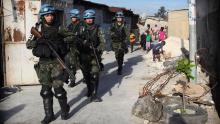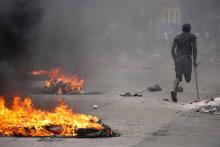Haitian President Assassinated, Government in Disarray
The Haitian President has been killed in his home and his wife wounded. He came into power in 2017 and has been ruling by decree since January 2020. While he did little to address Haiti's underlying issues, and may in fact have made them worse, neither he nor his wife deserved this. The former president's seventh prime minister had not been nominated yet, the President of the Supreme Court died of COVID, and the path ahead for replacing the President is unclear. Amongst all of Haiti's problems, the government is now in disarray. The full article by Miami Herald Journalists Jacqueline Charles and Johnny Fils-Aime is below with updates to follow.









